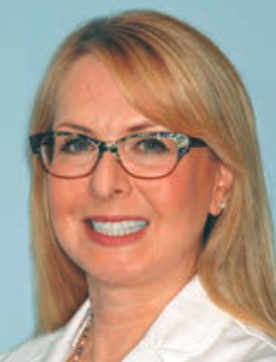Women in Optomety, November 2015. Article on Dr. Berger Israeloff, OD
While she was in Michigan to visit her daughter, Cheryl Berger Israeloff, OD, visited the offi ce of neurovisual optometrist Debby Feinberg, OD.
Dr. Feinberg wasn’t there that day, but between the phone conversations the two women had had and speaking with the doctors and office staff in Michigan, Dr. Berger Israeloff says, “I knew in my heart that I wanted to dedicate my professional life to helping people with neurovisual problems.” It’s been a two-year journey that is taking on a new dimension now as Dr. Berger Israeloff is opening the Neuro Visual Center of New York (NVCNY) in Garden City, New York, an eastern suburb of New York City. “I’m trying to clone Dr. Feinberg’s practice in New York,” she says.
She is also maintaining her primary care practice. The two locations are about 10 miles apart, but the offi ces are different. “One is very retail, general optometry. The other is a suite in a medical offi ce with all new state-of-the-art equipment, and we’re starting as paperless as possible,” she says. She is working to transition herself to working exclusively in the NVCNY.
Dr. Berger Israeloff says that moving toward neurovisual work was an opportunity to do something different and very meaningful. “This is a patient population that needs help. We can make a big impact on someone’s life—and it’s one area where we don’t have a lot of competition. In New York, here’s an optometry practice and an ophthalmology practice on practically every corner.”
Dr. Berger Israeloff had been seeing these patients in her regular practice, but she says that a dedicated facility will be helpful. “Patients who have vertical heterophoria or migraine sufferers or traumatic brain injury patients know a lot of the same people. They’ve gone to multiple doctors for help,” she says. “I have had patients whom I haven’t even helped yet who are so thankful that I sat and listened and didn’t call them crazy. They are so grateful I was able to validate their feelings.”
She’s been introducing herself to vestibular therapists and concussion doctors in the area. She explained that she uses a binocular vision dysfunction questionnaire that is scored. The score can raise a red flag that the patient warrants a binocular vision assessment. “During our fi rst visits with prism and trial framing, we can see right away if this is going o help,” she says. Patients sometimes return a few months later for some lens adjustments as their results progress. “We can get them back to functioning fairly quickly,” she says.
She encourages ODs in primary care practices to screen patients with migraines and other chronic complaints. A binocular vision dysfunction test for adults and children is available on Dr. Debby Feinberg’s website, vision-specialists.com, as well as on her own site, nvcofny.com. “If you suspect that a patient has symptoms of binocular vision dysfunction, have the patient complete the questionnaire and share those results,” says Dr. Berger Israeloff. “Sometimes in the optometric community, doctors are hesitant to refer out, but this is a good cause. A lot of the symptoms aren’t visual;
they’re vestibular. I’ve had a patient who got dizzy pushing a shopping cart, for example. Neurovisual optometry isn’t for everyone, but it’s important to have this in the toolbox of options.”
Women in Optometry – Nov 2015 – Vision Specialists Articles
Read the online edition of Women in Optometry, November 2015

